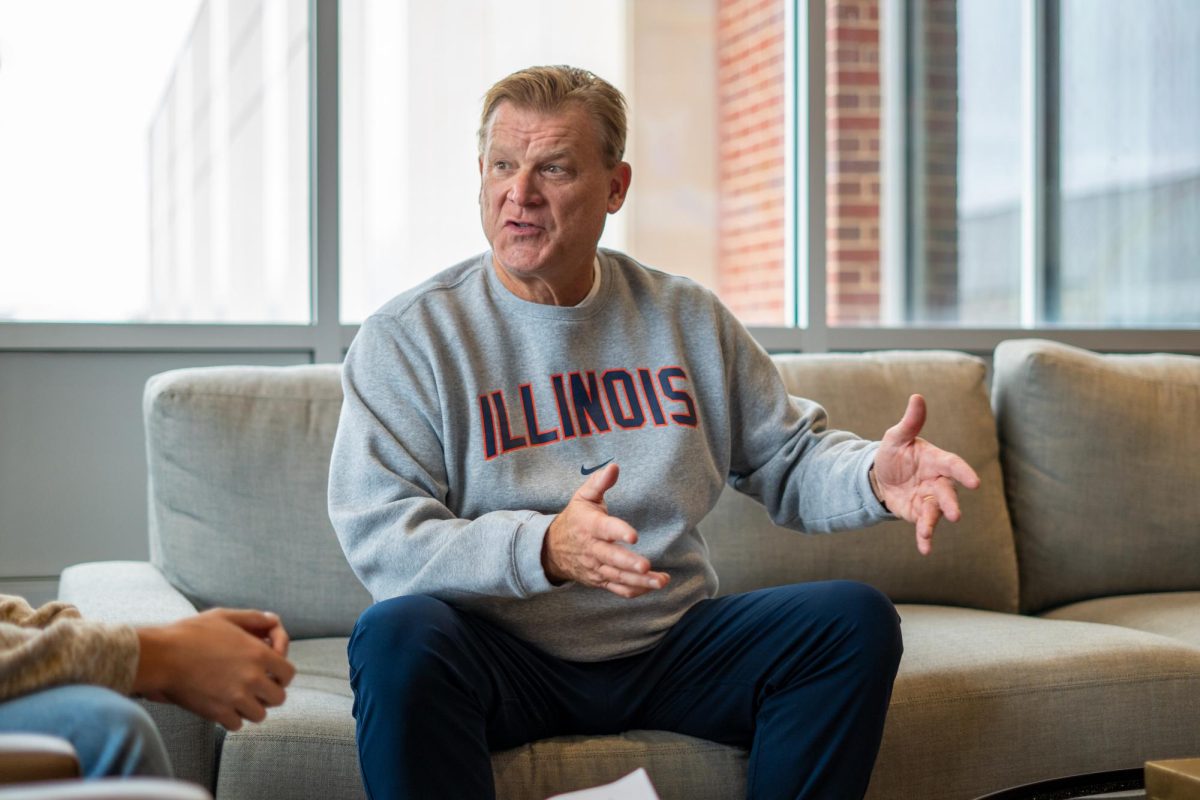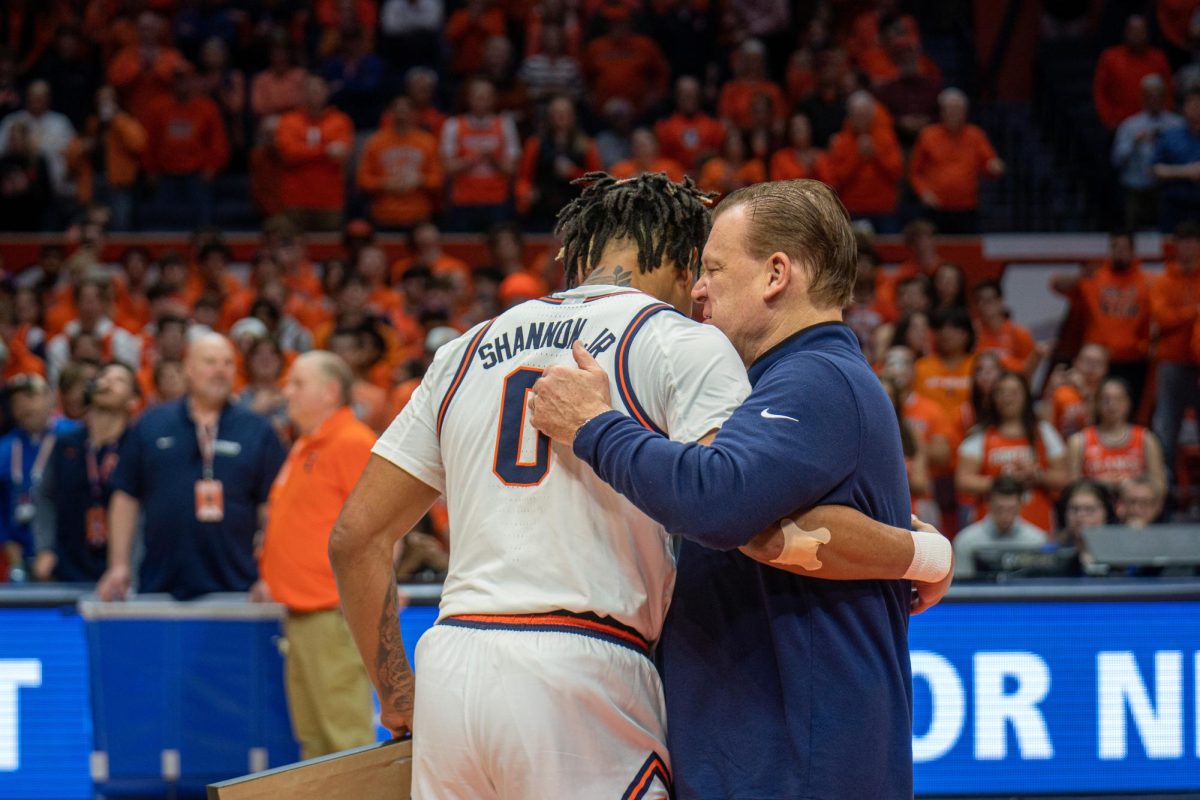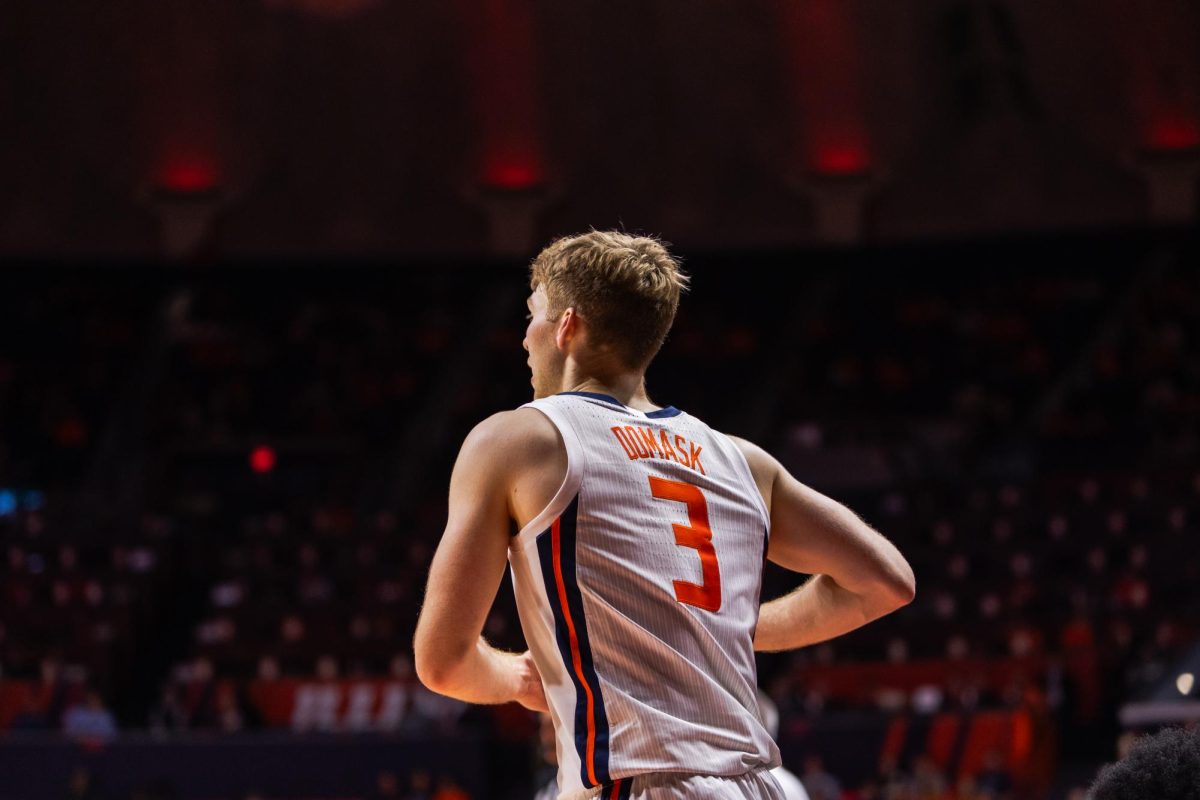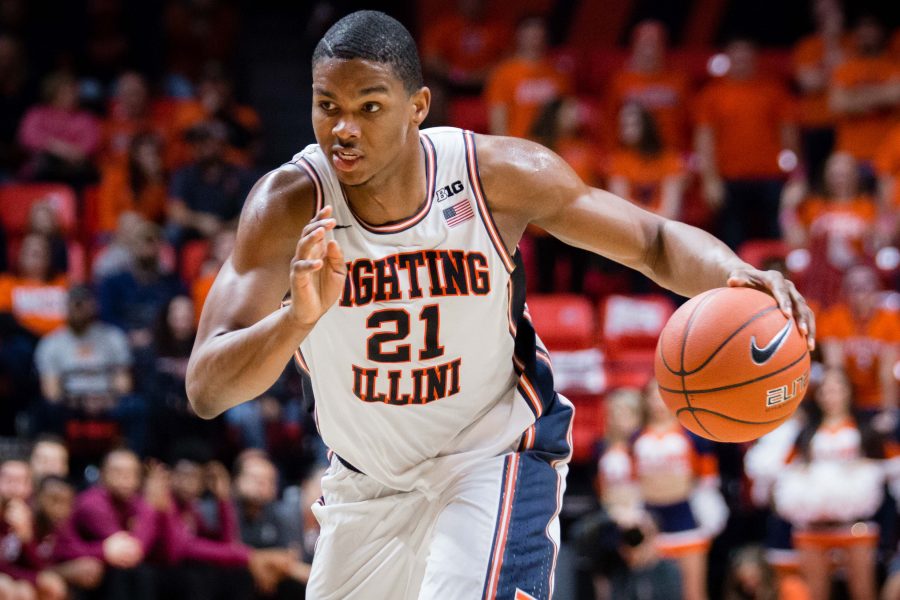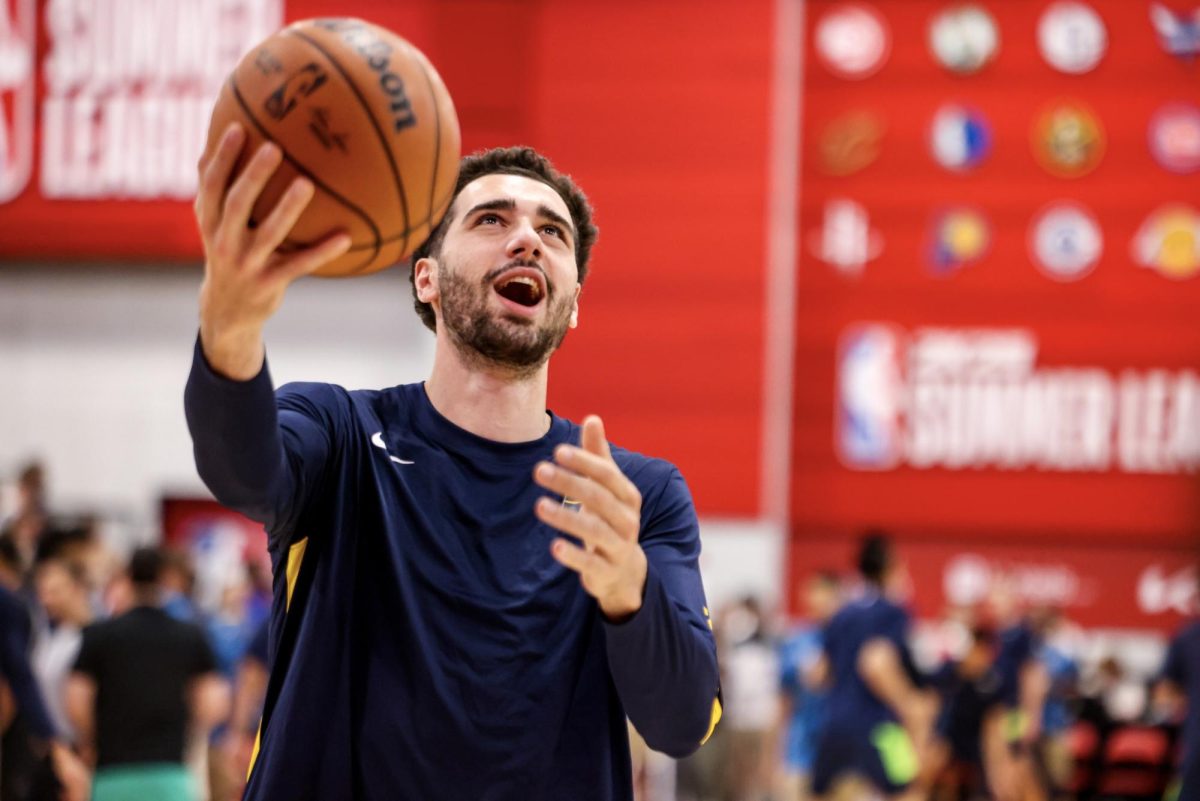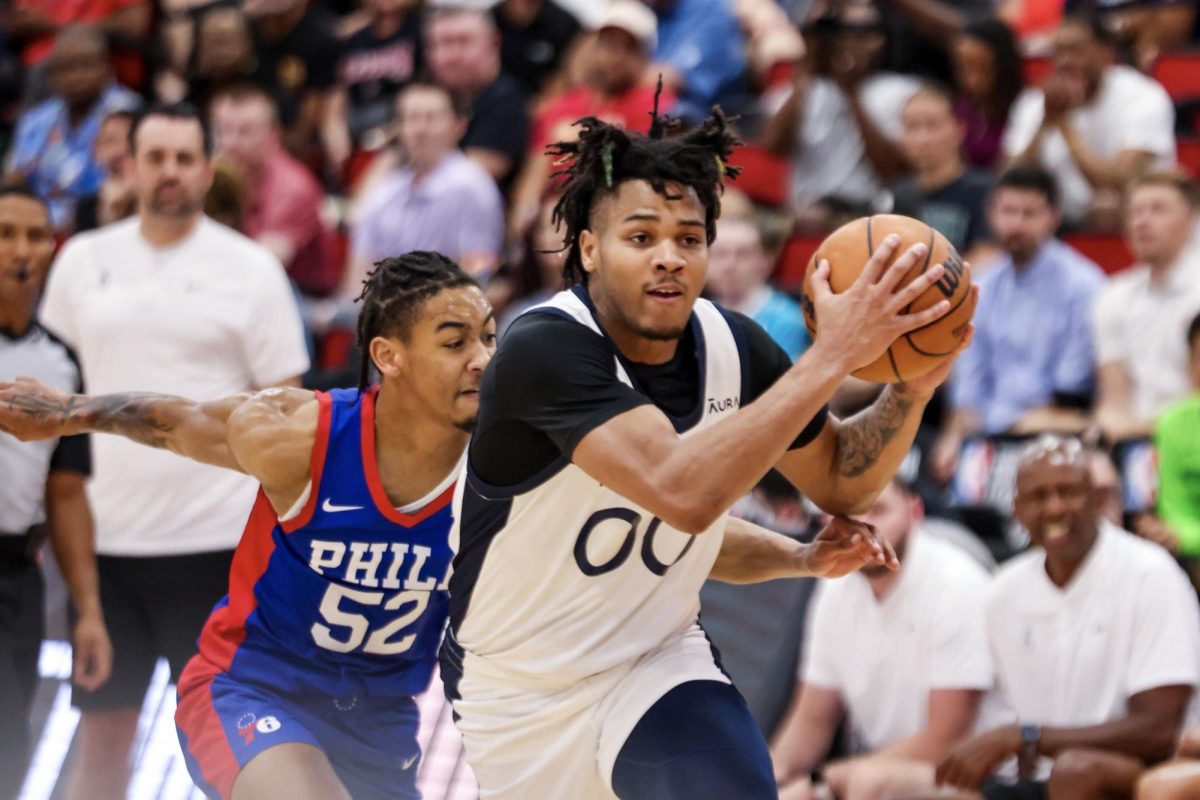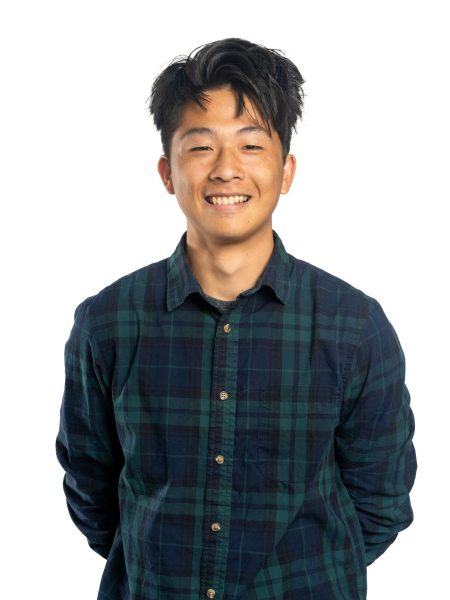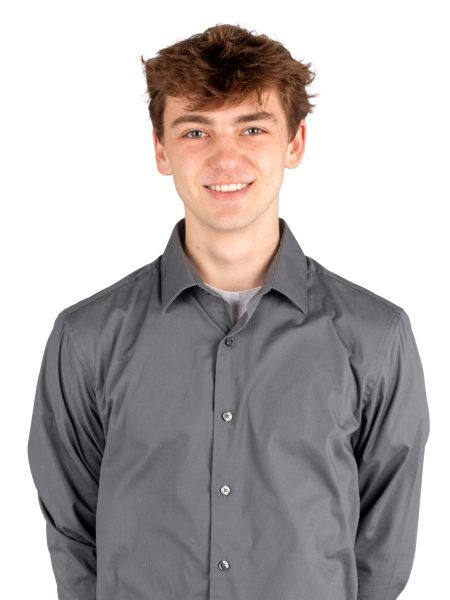Illinois men’s basketball head coach Brad Underwood sat down with The Daily Illini on Monday to discuss the past, present and future of the program. Since joining the Illini in 2017, Underwood has led the program to the 2021 Big Ten tournament title, the 2022 Big Ten title and three straight NCAA tournament appearances. Illinois is also the winningest team in the Big Ten over the past four years, a direct testament to the culture of success Underwood has brought to the program.
The Daily Illini: You had practice this morning. How does the typical practice go with this group of guys?
Underwood: We start in the weight room at 7 a.m., and if we need to back that up a little bit, it will be at 6:30, but it always starts with Adam Fletcher, our strength conditioning coach. He’s got the first 20-30 minutes with those guys getting them loose, stretching. There are some days we lift in the morning, then we jump right into the guts of practice. Early in the season, this time of year, we’ll have a tendency to go a little bit longer. Our guys’ first class is at 11, so today, we went right up until 10. We started today with about an hour of film and a little shorter practice. We had yesterday off (because) we had a big scrimmage on Saturday internally. It was a review day, learning day, teaching. Then, we were on the court a little shorter time, but most days early in the season, we’re gonna go 2.5-3 hours. Then, the guys have the rest of the day for academics. A lot of them will come back into the gym in the afternoon and shoot. They’ll use our recovery tools: the cold tubs, hot tubs, massage. They’ll do all those things in the afternoon to help their bodies feel good again for the next day.
Get The Daily Illini in your inbox!
DI: From last season, you’ve had some guys depart from the program. In the recruiting process this off-season, what strategies did you take to create the team that you wanted?
Underwood: We knew we had to get older. That was one of the things that … was very loud to us in terms of our team. Last year, we were the second youngest team in Power Five, and we had a great year. We had some very talented guys, Matthew being one who had a tremendous season for us. But we had to get older, and we did that with the addition of three grad transfers — Marcus Domask, Quincy Guerrier, Justin Harmon; those three guys are all 23, 24 years old. Then, we set out to attempt to become a better shooting team. We didn’t shoot the basketball very well last year from the three. That’s one of the things that we’ve addressed. Then, we added three freshmen — Nico Moretti was actually with us in January, a point guard from Italy, and then two freshmen — Dra Gibbs-Lawhorn and Amani Hansberry. So, a nice balance of new guys and old guys. The nice thing is you’ve got Terrence Shannon now in year two, you’ve got Coleman Hawkins in year four, Luke Goode in year three — along with Sencire and Ty both in their second year. All of those guys have played a lot of minutes. We’re excited to have them as our leaders.
DI: How has the new transfer portal process impacted the way that you coach in the off-season and what are your general feelings on it?
Underwood: We probably don’t have enough time to get that in-depth on this. There’s no doubt it’s changed the landscape of college basketball in college sports. There’s two (other) pieces — one, the COVID fifth year that was granted to student-athletes. During the year of COVID, they lost a year, so they were all granted a fifth. That’s created a huge age discrepancy. It has also allowed student-athletes the opportunity to graduate, and as grad transfers (they can) then set aside the one-time transfer option to be a second transfer. So, it’s opened the floodgate, so to speak. I think that a lot of people have gone that route in terms of filling specific needs with a player or two or three, that you might have as a whole. Freshmen, they’re the most likely to transfer because they can, but it’s been very impactful.
It lengthened our season. What I mean by that is they can go into the portal the Monday after selection Sunday. It was 60 days last year. Now, it’s 45 days. It’s a very active time. So, for six weeks you’re gonna be on pins and needles and not know what your roster looks like. We’re fighting through it — we’re looking at it as a great opportunity to enhance our program. I personally think it’s great for coaches, because it’s a buffet. We can go find a shooter, we can go find size, we can go find old, we can go find whatever we need in the portal.
But, we’ll see. It’s been really good so far. Matthew Mayer first team all league, Alfonso Plummer the year before all league. Those guys have impacted our program at a very high level and we think we’ve got guys this year who will do that.
DI: In a broader sense, what do you feel like some of the current strengths are with this current Illini team?
Underwood: I think depth. I’m excited to see how all that plays out. One of the things you go find in the portal is Marcus Domask, who’s a 1,600-point scorer. Quincy Guerrier — he’s been a four-year starter at Oregon and Syracuse in his two previous stops. Justin Harmon’s been a 28-30 minute-per-game guy for four years.
So, we’ve got experience and I like the way our freshmen are preparing. Nico Moretti, the extra semester with us last year practicing has benefited him. We had the trip to Spain this summer, which gave us a little bit of an early look at what things would look like. Then I think the other thing is, I think we’ll be a better shooting team and I think we’ve got tremendous balance. Physically, I think we’re a strong physical team.
We have positional size with Ty Rodgers; Terrence Shannon could be a starting backcourt. You know, 6-foot-6-inch, all about 215, 220 (pounds). That’s positional size. We’ll see how it all plays out, but I like this team in their makeup at this point.
DI: So, following a pretty eventful off-season, as you mentioned with the team’s trip and all of these different off-season training methods, are there any takeaways that you have about the team moving forward? Any exciting things to share?
Underwood: It’s always hard to pinpoint those things until you start playing games and you find out more about what your shortcomings are and what teams are trying to exploit.
In Spain, we played a lot of different lineups. I think we have tremendous versatility in what we do with Coleman Hawkins. I think there are a couple of our freshmen who had a tremendous trip. I’m excited to see how that all plays out. I think that we can play with speed, I think we can play with power. I think Dain Dainja is our most improved player and he showed that in just incredible moments in Spain. So, that gives us an inside-out component that is very nice to have. We’ve got to clean some things up — we made a lot of sloppy mistakes last year. Those are things that I think this team will do a much better job of eliminating. We’ll see how all of that plays out as games start.
DI: When it comes to this new team, what do you feel is the most underrated aspect?
Underwood: That’s a good question. I think we’re somewhere in the top 20. You get guys (like) Quincy, obviously coming (from) Syracuse and Oregon. Marcus and Justin coming from midmajors, I think it’s underrated how good of players they are. I think that the fact that we played Ty Rodgers, we played Sencire Harris, Dain Dainja was in his first year, last year, of playing (for Illinois after) transferring from Baylor — it’s undervalued that that was their first year of playing and now they have experience.
The old cliché — the best thing about freshmen is they become sophomores.
I’m pretty excited about that for a lot of these guys.
DI: So, you’ve coached a lot of great players, but a case like Coleman is really unique because it is uncommon for a player of his caliber to stay for four years. What has that meant for the program, and what has that meant for your coaching relationship with him?
Underwood: I think when you get guys that know they’re continuing to grow and get better — Coleman had to get stronger when he came into the program; he was thin.
It’s never been about his talent — his talent speaks for itself. He’s been a part of championships. He’s been a part of our success. He’s been a part of what our culture is and how we do things.
This summer was invaluable for him to be educated on what the NBA and the next level want. Then, to come back, he’s a patriarch of our community and of our university in terms of how well he’s liked. He’s just a super young man with a great personality and he’s a young man of high character. Just from a basketball sense, he’s now moved to the top of the opponent’s scouting report. His development continues to grow, but I think it’s a tribute to him.
He made a great decision based on the information he had, and we’re the ones that get to benefit from having him in our program for four years. With both him and TJ, you know, with both of them exploring the NBA option a little bit.
DI: Did you have to make any big adjustments in terms of not being sure if players would come back? Having to fill their roles?
Underwood: Yeah, it’s the hardest thing we do. You don’t replace a guy that’s been in your program for four years. He’s just got so much experience and knowledge and understanding.
Terrence was only with us one year — Terrence was a first team, he’s an All-American this year, and you don’t go replace that if they don’t come back.
The biggest challenge is we’re not sure until very late in the process what our roster looks like.
It’s June and it’s a miserable existence for a coach because you truly don’t know what your roster looks like if those guys go and stay in the draft. You can’t replace them.
We went out and got Quincy and Marcus early, we knew that those guys could fit in different roles. Even if those guys came back — and that’s been the case, but it’s a very challenging time for coaches when guys are in the process. You have to let them do their deal, but if they do go, you know you’re probably not replacing them.
DI: Illinois is colloquially referred to as a basketball school. People are buying out the basketball season tickets pretty much immediately. There’s a lot of excitement around the sport, there’s a lot of culture around the sport, really exciting energy. So what has this kind of meant for the team? Do they feel kind of supported by the external community?
Underwood: I think that the state of Illinois has always just taken great pride in its high school basketball in the communities. I go back to the early ’90s when I was at Western Illinois and the high school gyms were packed. There were so many good players that transcended to the universities and it didn’t matter if you were Eastern, Western, Northern, Southern — anywhere in between. In my time at Western Illinois, I hated playing the same night Illinois played because all of our fans came here to watch games. Basketball has always been a big deal with the fans — and rightfully so. There’s Final Fours in ’89, there’s a long history.
I think all we’ve done is kinda light the match again.
We’ve won more games than any Big Ten team in the last four years, so there is buzz. We play one of the toughest schedules in the country every year. I think that keeps things exciting for our fans to see and keeps them interested. There’s no doubting the passion that our fans have on social media and coming to games. We’ve got the best student section in the country in Orange Krush. Like I said, they sell out (season tickets) in 22 minutes. That’s, that’s special. That’s not taken for granted by us. We’re extremely appreciative.
State Farm Center has become one of the scariest home courts in the country. Opponents don’t like it, other coaches don’t like it. To see our fans step up to that challenge and keep that the way it is means a lot to our players. It is truly a team effort between our players, our coaches, our staff, our administration and our fans to make this one of the best jobs in the country. We’re striving for national championships here, and it takes everybody to do that.
DI: Since you arrived in 2017, you’ve sort of spearheaded the rejuvenation of this program. What has been the most rewarding aspect of bringing the program back?
Underwood: I don’t know if there’s one moment or one person. It takes a collective group.
The cliché — coaches win games, administrators win championships — is very true. You don’t do that without a collective group. I think this program is back where it belongs. I said that when I took the job — I think it will always be a program that deserves to be in the upper echelon of college basketball programs. I think it’s in the best league in the country.
The challenge when we got here was, who were we going to pass? Everybody’s got great coaches and great facilities, and it’s taken a lot of sweat equity to get this thing to a certain level. And great staff.
I think we’ve established a culture that when you ask people what you’re gonna get when you play Illinois, it’s fun. It’s exciting. It’s tough. It’s aggressive. It’s fit perfectly with the culture, the state of Illinois and the University of Illinois. I think it’s been a great marriage.
DI: So you’ve mentioned kind of the toughness of the Illinois basketball season schedule. Is there any particular opponent that you think is more exciting or more nerve-racking? Is there anything that you’d like to highlight in the season to come?
Underwood: I get that question a lot — and I say they’re all tough.
I think I look at stretches more than anything. The month of November this year, all home games. Just the way it worked out.
Obviously, you’ve got Marquette at home in a big-season matchup. They’re gonna be top three or four in the country on our court. Then, you’ve got tremendous midmajor programs.
Oakland, Colgate, sprinkled in there. There’s a stretch — and it all starts for me around Big Ten scheduling — at Rutgers.
Rutgers, in my opinion, is the hardest place to play in our league. It’s very difficult. They’ve got a great coach. That’s Dec. 2.
Then we go Dec. 5 — and that’s in that stretch — we stay on the east coast, we go to Madison Square Garden to play Florida Atlantic, a Final Four team, in what is the premiere event of basketball in the first semester, which is the Jimmy V (Classic).
There’s a lot of positive feelings that come from that because of Jimmy V and what it does for cancer, but being on that stage in the Mecca, in Madison Square Garden.
Right after that, we’re at Tennessee, who’ve got one of the all-time great coaches in Rick Barnes. They’ve got one of the largest arenas in the country and they’re sold out. It’s on CBS at noon.
So, you go second Rutgers, fifth Florida Atlantic in the Jimmy V and the ninth at Tennessee, who are top six in the country — and they’re equally as old and they’re equally as deep as us. The one thing I’m excited about in that game is I know how tough they are.
It’s a great measuring stick for us as we move forward then into league play.
I don’t want to forget, I mean, we’ve got Colgate and then we’ve got Missouri and the Braggin’ Rights game. That’s our month in December, which is an incredible stretch of games.
I look at stretches more than I do games.
DI: Every year brings a fresh start. What do you see as sort of the keys to getting over the hump in March next season?
Underwood: March is unique. You can’t play bad — you can’t have a bad day. You can’t have an off day.
Everybody was good — and we were one seed and on a roll. Have a bad day and you go home.
I thought our last two seasons — and I’m not making excuses, because you gotta beat them — but you get Arkansas last year, who’s filled with NBA lottery picks, and they went on to beat Kansas the next round.
The year before that, we got the most underseeded team in the country in Houston. Coming off of the Final Four, we were four, they were five.
We had some unfortunate things happen that year. Trent Frazier had pink eye, and we had a bad injury to Jake Grandison, which ended up being a big loss for us, but you’ve gotta have a little bit of luck.
I say this all the time — you just have to keep getting in that tournament and anything can happen.
I like where we’re at. I like where we’re starting the season, how we’re developing. Then, you know, once you get to March, you gotta be your best.
DI: Entering your seventh year at Illinois, do you have a favorite coaching memory in your time here?
Underwood: Well, there’s a couple of those trophies over there.
I think it was a turning point game when we had Michigan State here. They were ranked in the top 10 and we hadn’t beaten anybody any good. We had Ayo Dosunmu who was a freshman, Andrés Feliz, and that was the start, that’s when we started to turn the corner and then we went to Ohio State and on the road.
Obviously, the Iowa game — and the championship and celebrating on the floor with 16,000 of your closest fans in a mosh pit. It was very hot.
The Big Ten championship, you know, and to persevere through all that — COVID year, testing at 6 a.m. every morning. Just everything that went into that. I think there’s a lot of really good moments.
DI: Is there any message you’d like to send to the Illini fanbase in terms of what to expect for this team this season?
Underwood: Yeah, a great one.
I mean, I expect a great season.
I am, and I think we should all be setting an expectation, and that is, a standard. I say this all the time, our standard is winning — trying to win — the national championship.
I tell our players that — you’re not gonna win every game. Sometimes, you look up and you’ve done just about everything, and the other team just happened to have more points than you. It’s a long season, but I love how hard we’ve worked. I love our approach.
This is a group of guys that I know our fans will enjoy watching and getting to know; they’re really good people and human beings. They’re going to try as hard as they possibly can to win every game and you don’t always get to say that. Some guys get into their own feelings and emotions.
This group is … trying to accomplish something that hasn’t been accomplished in a long time. So my expectation level is high. I hope our fans’ expectation levels are high — it’s obvious. They bought tickets and they’re selling out. The last thing I always say: Have fun, man. It’s college sports. There’s nothing more fun than going to a basketball game and letting it rip for two hours and knowing that Tom Izzo’s on the other side or Fran McCaffrey is on the other side or Greg Gard or whoever it is; and we get to not like them for two hours, but we can have fun and we get to cheer for our University. Set the bar high. We’re gonna shoot for it and nothing less. Along the way, we’re gonna have a lot of fun and enjoy the opportunity to get to do this in front of the best fans in the country.






